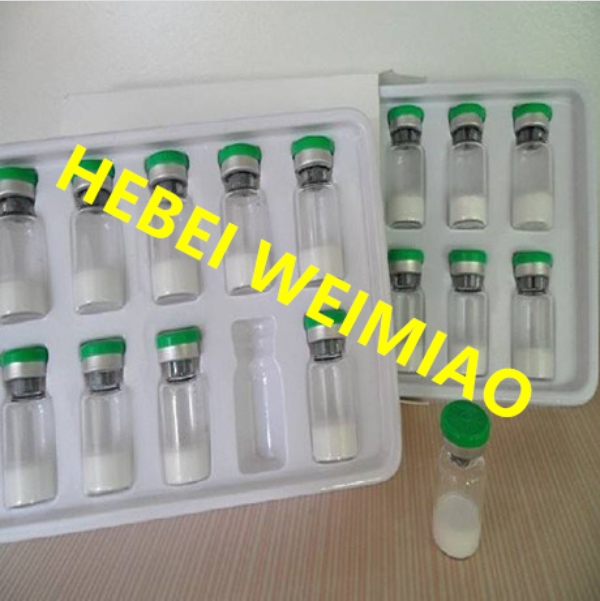
- +86-13363869198
- weimiaohb@126.com

Nov . 22, 2024 11:23 Back to list
remdesivir cas1809249-37-3 manufacturers
Remdesivir Manufacturers and Key Insights
Remdesivir, a nucleotide analog, has emerged as a critical antiviral medication in the fight against viral infections, particularly COVID-19. Identified by its CAS number 1809249-37-3, this drug was initially developed by Gilead Sciences for the treatment of hepatitis C and later studied for Ebola virus infections. In 2020, it gained prominence when it was granted emergency use authorization by various health authorities worldwide for the treatment of COVID-19.
Mechanism of Action
Remdesivir works by inhibiting viral RNA synthesis. It is converted into an active metabolite within the body that mimics adenosine triphosphate (ATP), thereby inserting itself into the viral RNA chain during replication. This incorporation ultimately results in premature termination of viral RNA synthesis, which hinders the virus's ability to replicate. Due to its efficacy in reducing the duration of symptoms in severe cases of COVID-19, the drug has become a cornerstone in the therapeutic management of this disease.
Key Manufacturers
Several manufacturers are involved in the production of Remdesivir, reflecting the global need for this essential medication during the pandemic and beyond. Gilead Sciences remains the primary producer of Remdesivir, instrumental not only in its development but also in the approval processes with regulatory bodies like the U.S. Food and Drug Administration (FDA) and the European Medicines Agency (EMA).
In addition to Gilead, numerous generic manufacturing companies around the world have received licenses to produce Remdesivir. This is particularly relevant in low- and middle-income countries, where the need for affordable access to essential medications is paramount. Companies based in India, such as Hetero Labs and Cipla, have significantly scaled up their production capacities. They have been granted permissions under the World Health Organization's Emergency Use Listing (EUL) and have set pricing strategies that make the drug accessible to healthcare systems in these regions.
Regulatory Approvals
remdesivir cas1809249-37-3 manufacturers

The path to regulatory approval for Remdesivir was expedited due to the global health crisis. Initial studies demonstrated a reduction in the recovery time for hospitalized COVID-19 patients, leading to its emergency use authorization in multiple countries from the onset of the pandemic. Subsequent randomized controlled trials reinforced its benefit in this cohort of patients, prompting further endorsements from health organizations.
In addition to its COVID-19 applications, ongoing research is assessing the drug's utility against other viral pathogens. The FDA approved the commercial use of Remdesivir in October 2020, firmly establishing its role in antiviral therapy.
Challenges and Considerations
Despite the advancements in production and distribution, challenges remain. The demand for Remdesivir surged during peak COVID-19 waves, leading to supply chain issues and potential shortages in some regions. Additionally, the drug is administered intravenously, which may limit its accessibility compared to oral antivirals.
There have also been considerations regarding the safety profile and the potential for adverse effects in certain patient populations. Ongoing pharmacovigilance is essential to monitor the long-term effects of Remdesivir therapy, especially in diverse demographic groups.
Conclusion
Remdesivir, with CAS number 1809249-37-3, has undeniably transformed antiviral treatment, especially in the context of COVID-19. The collaboration between innovative pharmaceutical companies and generic manufacturers is vital for ensuring global access to this critical medication. As we continue to navigate post-pandemic recovery and potential future outbreaks, the lessons learned from Remdesivir's rapid development and distribution will be invaluable in preparing for new challenges in public health.
-
Top CAS: 79099-07-3 Factories & Wholesale Supplier from China
NewsJul.30,2025
-
High-Quality GS-441524 for White Liquid Type Factories & Suppliers
NewsJul.29,2025
-
High-Quality Pharmaceutical Intermediates for Sale – Reliable Supply
NewsJul.29,2025
-
High-Quality Pharmaceutical Intermediates for Sale - Reliable Solutions
NewsJul.29,2025
-
High-Quality Pharmaceutical Intermediates Supplier for Global Market
NewsJul.28,2025
-
GS-441524 for White Liquid Type Factories – High Purity & Reliable Supply
NewsJul.28,2025